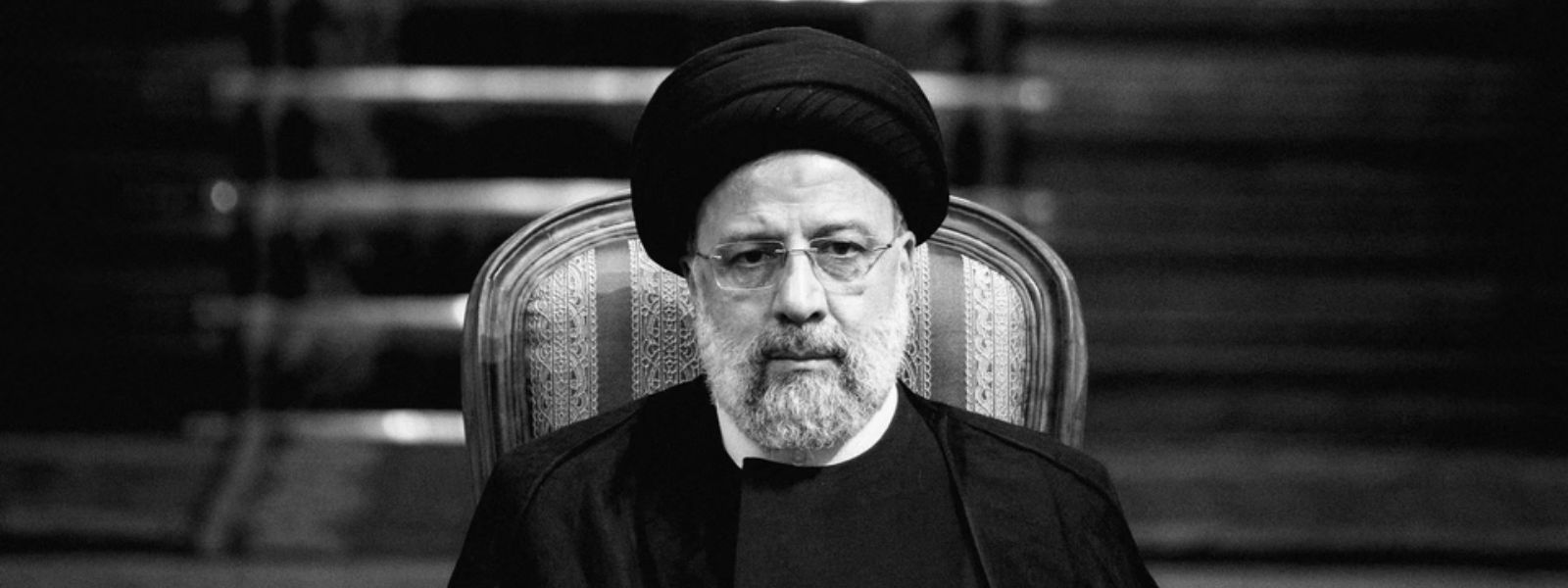.webp)

Iran’s Political Landscape Shifts: President Raisi Dies in Office, Elections on Horizon
COLOMBO (News 1st); Iran's President Ebrahim Raisi dead on 19 May 2024 in a helicopter crash. Iran's semi-official news agency, described them as having been "martyred in the crash."
Raisi was the second-most powerful person in the Islamic Republic after Supreme Leader Ayatollah Ali Khamenei.
Raisi is also the second president of Iran to have died in office, following Mohammad-Ali Rajai, who died in a 1981 bombing.
His death received mixed responses among the public in Iran, some mourning and others celebrating all along with huge global media coverage engaging major international power denominations worldwide.
As for the Islamic Republic's consitution article 131, if a president dies in office, the first Vice president who is supposed to act as the acting president with elections mandated within 50 days after his formal appointment.
Ayatollah Khamenei (The supreme leader of Iran), who has the final say in all matters of state in Iran appointed Vice President Mohammad Mokhber to assume interim duties as the acting president until the elections sheduled on June 28.
Iran's cabinet has also appointed deputy Foreign Minister Ali Bagheri Kani as acting foreign minister.
Leader of the Islamic Revolution Ayatollah Seyyed Ali Khamenei says Iran will continue to strengthen bonds of friendship with regional states despite the “difficult” loss of President Ebrahim Raeisi.
Ayatollah Khamenei made the remarks in a meeting with Qatar’s Emir Sheikh Tamim bin Hamad Al Thani, who was visiting Tehran to honor the late president, whom the Leader described as a “polyhistor.”
Ayatollah Khamenei said countries in the region have no option but to unite in the face of adversarial efforts to disrupt stability and peace in the region.
Iran’s thirteenth president, Raeisi, and his companions, including Foreign Minister Hossein Amir-Abdollahian, were martyred in a helicopter crash while returning from an event on the border with Azerbaijan, which was in line with his government’s policy to boost economic ties with neighbors.
He always asserted that his administration seeks to work out strategies to neutralize the cruel sanctions imposed on the Islamic Republic and at the same time pursue diplomacy to have them lifted without pinning hopes on the West to meet Iran's national interests.
“Iran’s foreign policy does not begin with the Joint Comprehensive Plan of Action (JCPOA) and does not end with it either,” he said at his first press conference after taking office in 2021, pointing to the revival of the 2015 Iran nuclear deal after the US withdrawal under then-President Donald Trump in 2018.
President Raeisi’s administration began fostering stronger political, economic, and strategic connections with regional countries, including those in the Persian Gulf, and countries in the Eastern hemisphere, particularly those in Asia, as well as Africa and Latin America.
The goal of cultivating closer and stronger ties with these countries was to broaden alliance networks and nullify the impact of sanctions imposed on the Islamic Republic by Western hegemonic powers, said Iranian Media.
Iran’s acting president Mohammad Mokhber has had separate meetings with Tajikistan president and the foreign minister of Egypt.
The meetings took place in Tehran on Wednesday as senior diplomats from different countries are in the Iranian capital to attend a funeral ceremony for Iran’s late President Ebrahim Raisi and Foreign Minister Hossein Amirabdollahian who lost their lives in a helicopter crash on Sunday.
In a meeting with Tajikistan’s President Emomali Rahmon, Mokhber said that the expansion of relations with Islamic, neighboring, and like-minded countries is among the main achievements of the martyred president.
The Tajik president, for his part, said that the late President Raisi was a skilled president who will never be forgotten by the people and government of Tajikistan.
In another meeting with the Egyptian Foreign Minister Sameh Shoukry, the Iranian acting president referred to the efforts by the late President Raisi and foreign minister Amirabdollahian in providing support for the oppressed people of Palestine.
He also highlighted the need for the revival of ties with Cairo in different cultural, political and economic areas.
In the meantime, the Egyptian foreign minister said he was sure that Iran will pass behind these difficult days.
He voiced his country’s willingness to give a boost to relations with Iran.
News 1st's Sujini Bandara contributed to this report.
Other Articles
Featured News





.png )
-822495_550x300.jpg)
-819380_550x300.jpg)


-812087_550x300.jpg)
-810262_550x300.jpg)













.webp)






